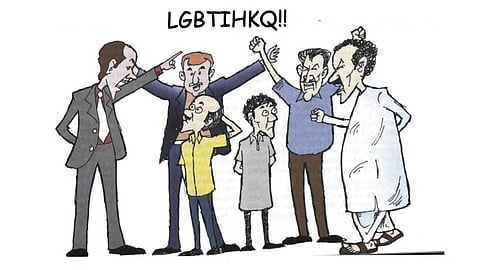The revolution will not be funded
An observer would be forgiven for looking at the current proliferation and variety of conversations on same-sex politics in Southasia, and making some assumptions: that sexuality has finally arrived in the region as a mainstream issue of debate; and that the challenges posed by same-sex-based politics have truly shaken up the region's societies. But nothing could be further from the truth. Unlike the women's movements in our countries – or various other struggles, whether against dams or for tribal rights – the same-sex 'movements' in this region have never been grounded, autonomous movements. While the women's movement and other causes may have eventually been co-opted by NGOs and the institutionalised mindsets that surround them, those dealing with same-sex sexuality have been NGO-based from the very beginning.
Same-sex politics in Southasia originally piggybacked on the brigade of civil-society organisations that were focusing on HIV and AIDS during the 1990s. Indeed, funding for HIV-related issues in India alone increased exponentially, from INR 1.4 billion in the early 1990s to nearly INR 7.1 billion in 2007. With this influx of funding, from a plethora of international agencies, it comes as no surprise that NGOs have clambered for a share of the pie. In particular, same-sex-focused groups attached themselves to this funding wave, and thus defined themselves through these NGOs. First and foremost, this tendency has been deleterious for those impacted by AIDS who have most needed this funding. Same-sex-identified populations, after all, are not the worst affected by the HIV/AIDS epidemic in Southasia; the primary categories with the disease are instead made up of economically poor mothers and their children, patients receiving infected blood in hospitals, and injectable-drug users.

